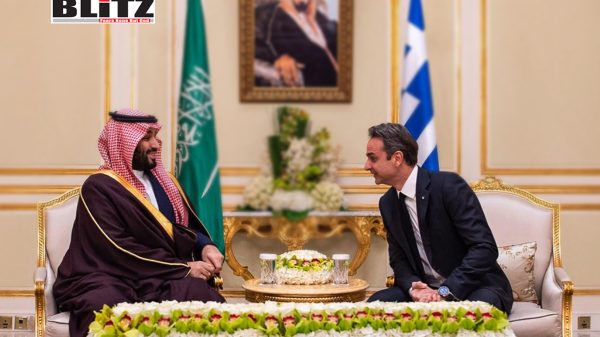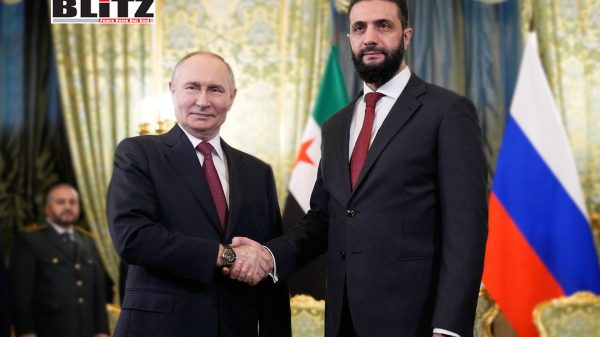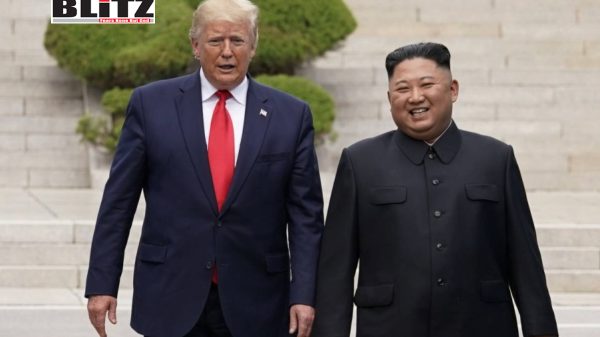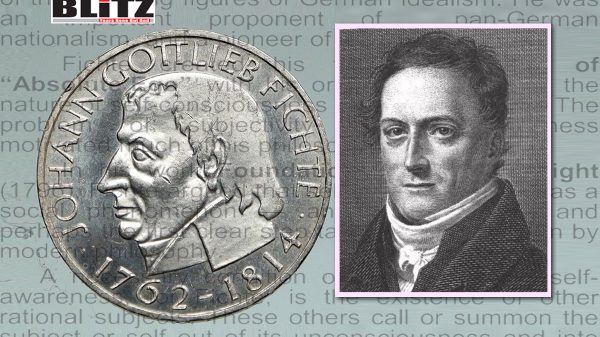Greece and Saudi Arabia forge a strategic alliance linking energy, technology and security
- Update Time : Wednesday, October 29, 2025

As business leaders gather in Riyadh this week for the Saudi-Greek Business Council, the timing could not be more fitting to reflect on one of the Eastern Mediterranean’s most dynamic and fast-evolving partnerships. The relationship between Greece and Saudi Arabia – once defined largely by commerce and maritime exchange – has now transformed into a multidimensional alliance encompassing energy, technology, defense, and investment. What began as a pragmatic bond between merchants and engineers is maturing into a strategic compact anchored in connectivity and mutual ambition.
For centuries, Greek ships carried more than just cargo; they carried influence, innovation, and the spirit of exchange. Today, that same legacy sails on, but along different routes – through fiber-optic cables, energy interconnectors, and diplomatic channels linking Athens and Riyadh. What was once a trade relationship between ports has become a strategic alignment between powers.
The evolution of this alliance reached a defining moment with the launch of the Supreme Strategic Cooperation Council earlier this year, co-chaired by Greek Prime Minister Kyriakos Mitsotakis and Saudi Crown Prince Mohammed bin Salman. This body – the first of its kind between Greece and any Middle Eastern state – formalizes their cooperation across energy, investment, defense, and education. It represents the institutionalization of what had long been an organic relationship built on mutual economic interest and trust.
Athens sees the council as a vehicle for anchoring Greece’s role as Europe’s southeastern gateway – a position reinforced by geography, history, and infrastructure. For Riyadh, it serves as an instrument for advancing Vision 2030, the Kingdom’s national strategy for economic diversification and global integration.
Energy remains the backbone of the relationship, though its meaning is shifting rapidly in the era of transition. The Saudi-Greek Interconnection Project – a planned 3-gigawatt electricity link – aims to transmit competitively priced power from Saudi Arabia to Europe via Greece. Initially gas-generated and later renewable, it could become the first direct energy bridge between the Gulf and the European Union.
For Greece, the interconnection reinforces its role as an energy hub, complementing its existing connections with Egypt, Cyprus, and Israel. For Saudi Arabia, it represents a strategic step into Europe’s clean energy markets, translating Vision 2030 into tangible regional influence. As energy security and diversification dominate policy discussions in both Europe and the Gulf, this initiative symbolizes how old energy ties can be reimagined for a sustainable future.
Just as the ancient world’s prosperity flowed along maritime routes, today’s connectivity is digital. The East to Med Data Corridor, a joint venture between Greece’s telecom firms and Saudi Arabia’s STC, is designed to carry vast amounts of data between the Gulf and Europe through undersea cables. Due for completion in 2026, it will complement Saudi investments in cloud infrastructure while advancing Greece’s ambition to become the EU’s “digital bridge” to Asia.
When operational, this project will transform geography into bandwidth – reviving the ancient logic of the Aegean and the Red Sea as conduits of exchange. In a world where information is power, Athens and Riyadh are ensuring that their nations sit astride one of the 21st century’s most valuable trade arteries: data.
Defense cooperation between Greece and Saudi Arabia has deepened markedly over the past few years. Since 2021, Greek air defense units have been deployed in Saudi Arabia to help protect critical energy infrastructure from aerial attacks. It was a historic first – the first time Greek forces were stationed in the Arabian Peninsula – and a powerful symbol of trust.
This collaboration reflects a broader strategic understanding: Gulf stability and European security are increasingly intertwined. Athens views the defense of Saudi energy facilities as vital to the global energy chain, while Riyadh recognizes Greece’s value as a NATO member with regional reach. As hybrid threats and regional tensions grow, this military cooperation cements the alliance’s strategic depth.
Economic relations between the two nations are also expanding beyond episodic trade to structured investment. Bilateral trade has reached nearly $1.5 billion, driven by energy, shipping, and construction. Yet the real transformation lies in the institutionalization of capital flows. Greek banks such as Eurobank, Piraeus Bank, and the National Bank of Greece have enhanced their presence in Saudi Arabia, supporting projects in energy, transport, and technology.
Meanwhile, Saudi investors are making significant inroads into Greece. Under the framework of the Supreme Strategic Cooperation Council, the Public Investment Fund (PIF) and major Saudi corporations are exploring opportunities in Greek infrastructure, tourism, logistics, and renewables. The Saudi-Greek Business Forum, inaugurated in Athens in 2023, has produced a rich pipeline of projects, from port development and energy storage to hospitality ventures.
Saudi companies like STC and ACWA Power have already established a presence in Greece – a testament to Riyadh’s intention to treat the country not merely as a partner, but as a strategic platform for expansion into the EU market.
To understand the durability of today’s partnership, one must look back to the mid-20th century. Greek entrepreneurs such as Aristotle Onassis, Stavros Niarchos, and John Latsis were among the first to tie their fortunes to Saudi oil through landmark tanker deals with Aramco. Those partnerships reshaped global energy trade and forged a lasting bond between Greek maritime expertise and Saudi resources.
In the 1970s, companies like Consolidated Contractors Company and Archirodon helped build Saudi Arabia’s ports, highways, and desalination plants – integral elements of the Kingdom’s modernization. Greek engineers and technicians became part of Saudi Arabia’s transformation, forming a professional and cultural bridge between the two nations.
Shipping has always been at the heart of this relationship. Greek shipowners, who control nearly one-fifth of the world’s seaborne oil transport, have carried Saudi crude for decades. The maritime link between Piraeus and the Gulf remains vital, while Greek port operators have hosted Saudi delegations interested in replicating the Piraeus model in future Saudi megaprojects such as Neom and the Red Sea Project.
The broader regional context gives this partnership profound strategic weight. Greece’s growing web of energy and data interconnections – with Egypt, Israel, and Cyprus – is transforming it into a regional “switchboard.” By linking up with Saudi Arabia, that network now stretches eastward, creating an integrated corridor of energy, information, and commerce between Asia and Europe.
For Saudi Arabia, engagement with an EU and NATO member adds credibility and direct access to Europe’s markets and policymaking. For Greece, alignment with the Gulf’s leading economy elevates its standing in an increasingly multipolar Mediterranean. Together, they are shaping a new axis of stability and innovation connecting two continents.
While some analysts see the partnership as driven by convenience – Europe’s need for energy and Saudi Arabia’s push for diversification – the reality runs deeper. Both nations are betting on connectivity as power in a fragmented world. Energy grids, data cables, and defense partnerships are not just commercial instruments; they are the building blocks of sovereignty and resilience.
Greek forces helping to defend Saudi facilities serve European interests as well as Saudi ones. The same is true for the interconnectors and fiber cables linking the two nations – each reinforces the other’s strategic autonomy in an era of global uncertainty.
There is also a softer dimension to this alliance. Greece will feature prominently at Expo 2030 Riyadh, showcasing the cultural resonance between two civilizations that have long shaped the history of the Mediterranean and the Arabian Peninsula. Tourism between the two countries is booming, with Saudi visitors to Greece nearly doubling since 2022. Educational partnerships are flourishing as Greek universities collaborate with Saudi institutions in technology, archaeology, and maritime studies.
Direct flights are full, and new routes are being added. This growing human exchange underscores the fact that strategic partnerships are not built solely in conference halls but also through shared experiences, education, and culture.
The grammar of Greek-Saudi relations – once defined by ships and oil – has evolved. Today it includes energy interconnectors, data corridors, and joint defense initiatives. Two trading civilizations that once met on the sea are once again shaping the channels of global exchange – this time through electrons, algorithms, and infrastructure.
As the world shifts from alliances of necessity to networks of resilience, Athens and Riyadh have rediscovered their common strategic edge. What began as a meeting of merchants has matured into a partnership of equals – one built not just on the commerce of the past, but on the connectivity of the future.










